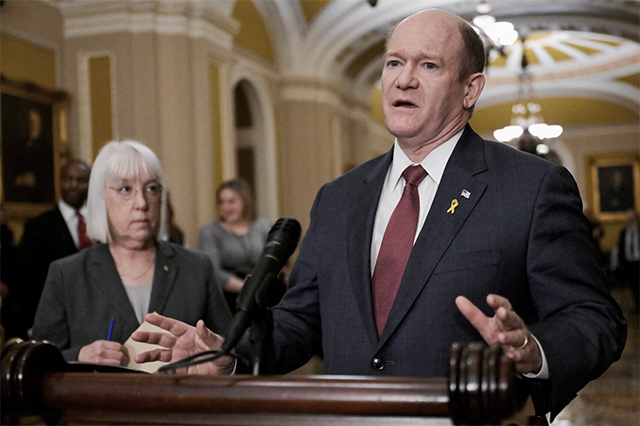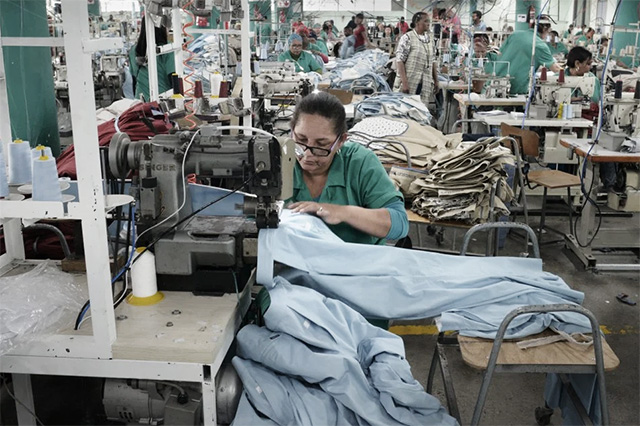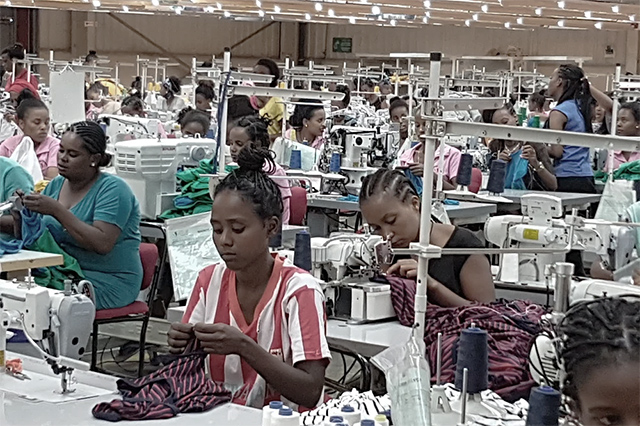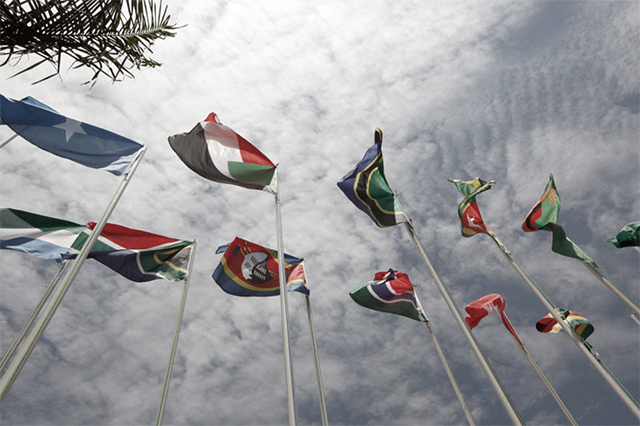Why AGOA should be extended for 15 years: An Ethiopian case study
It is frequently said that investing in Africa is not for the faint-hearted.
It is less well appreciated that entering the U.S. market is not for the faint-hearted either, especially by those small and medium businesses in Africa that AGOA was designed to benefit.
For the last 24 months, the African Union and African diplomatic corps in Washington have been advocating a 15-year extension of the African Growth and Opportunity Act (AGOA). The Obama administration has also called for a 15-year extension.
Recently, I spent a week in Ethiopia last month meeting with many businesses working to take advantage of AGOA.[1] I gained the clear impression that a 15-year extension is needed for Ethiopia and that most other African countries would benefit in the same way.
Ethiopia’s trade priorities and business environment
In many respects, Ethiopia works well as a representative AGOA country. It is an agriculture-based economy and, with 94 million people, the second-most populous nation in Africa. The country has experienced impressive economic growth of 10.7 percent from 2003 to 2012 and actually has no oil and few minerals to export. It is one of the poorest countries in the world, ranking 173 out of 187 countries in the 2013 UNDP Human Development Index.
Since 2001 when AGOA went into effect, Ethiopia's AGOA exports—principally apparel and textiles, leather products, and horticulture—increased by 150 percent. While this might sound encouraging as a percentage, Ethiopia's AGOA exports were a mere $35 million in 2013. In fact, as the World Bank recently noted, Ethiopia is underperforming not so much in the current utilization rates of trade preferences, but rather in the volume of exports it could be sending to the U.S. and other countries. For example, though Ethiopia and Vietnam have roughly the same population, Ethiopia exports less than $3 billion to the EU and U.S., while Vietnam exports $120 billion, even though it faces higher tariffs.
Competing national priorities are one reason why the number of Ethiopian AGOA exports is so small. Working with local companies to navigate the complexities of the U.S. market under AGOA has taken a back seat to the government's more immediate need to increase productivity in the agricultural sector, launch major infrastructure projects, and negotiate entry to the World Trade Organization and the emerging tripartite free market of the Common Market for Eastern and Southern Africa, the East African Community, and the Southern African Development Community in an effort to increase regional exports. The conflicts in neighboring Sudan, South Sudan, and Somalia also require significant government attention and resources.
Ethiopia’s business environment is also a major obstacle. The country ranks 125th out of 189 economies in the 2014 World Bank Doing Business report and 166th for “Starting a Business.” In addition, lack of access to credit and reliable internet considerably hinder business development and innovation.
U.S. non-tariff barriers also constrain Ethiopia’s exports to the U.S. under AGOA. Last year, a group of Ethiopian horticulture companies sent a consignment of roses to the U.S. for sale for Valentine’s Day in an effort to break into the U.S. market. Unfortunately, the U.S. Department of Agriculture has not delivered on its commitment to establish a fumigation center at Dulles airport in Washington, D.C. (the port of entry for Ethiopian Airlines), and the roses were destroyed. With Ethiopian Airlines set to expand service to Los Angeles in June, this bottleneck needs to be removed quickly, especially given the potential for Ethiopian horticulture to be competitive in the U.S.
In fact, the expansion of Ethiopia’s horticulture is a “spectacular export success” of the past decade, apart from its inability to access the U.S. market. The sector now consists of 100 firms, generates $200 million of export earnings, and employs 300,000, directly and indirectly.
Ethiopia and AGOA: Great success and immense potential
At the same time, Ethiopia is at the forefront of utilizing AGOA: It is among the first countries to develop an AGOA strategy, a draft of which was completed in October 2013. More recently, an AGOA Center was established in the Ministry of Trade with a mandate to help Ethiopian companies take advantage of the legislation.
Ethiopia is creating opportunities around AGOA outside of the government as well: Three years ago, as a result of significant government investments, the Ethiopian Institute of Textile and Fashion Technology opened at Bahir Dar University. Last year's graduating class of 45 were all employed by Ethiopian apparel companies. While this number might seem small, it is actually impressive and suggests that the institute has the potential to become a center of excellence on the continent for apparel design and the backbone of a robust national apparel industry.
Ethiopian companies are just beginning to find American buyers interested to source from the country. Bahir Dar Tannery, an 18-year-old company that has been exporting gloves to Italy, Japan, and Sweden is in the final stages of completing an agreement to supply Wal-Mart. Once finalized, the agreement would lead to increased production from 10,000 to 50,000 pairs of gloves a month, which could lead employment to increase from about 200 workers to two shifts of 350. Bahir Dar Tannery is just one of numerous companies in Ethiopia working to utilize AGOA.
International apparel companies are also looking to locate in Ethiopia in order to access the U.S. market under AGOA. Phillips-Van Heusen (PVH) Corporation, which owns the Tommy Hilfiger and Calvin Klein labels, is considering a major investment that would include integrated cotton and apparel production. A privately owned Chinese company, Huajian shoes, has already established a production facility, and, last year, the company’s 3,500 workers produced 2 million pairs of shoes. Huajian will soon expand to 10,000 employees and develop apparel and leather products for export.
Ethiopia and AGOA are both are at key transition points. Ethiopia is about to issue its second Growth and Transformation Plan (2016-2020), which is expected to place an emphasis on the promotion of light manufacturing in an effort to shift labor from low to high productivity. In fact, Ethiopia’s potential in light manufacturing is significant: Ethiopian manufacturing firms have grown at 9.8 percent over the last decade, and they can help absorb the 2.5 million young and semi-skilled people who enter the country’s job market each year. This is precisely what AGOA was intended to achieve.
There are concerns that sub-Saharan Africa’s rapid economic growth has not led to an economic transformation toward higher productivity and economic diversification. Across the continent, fewer than 10 percent of workers find manufacturing jobs and in Ethiopia only 3 percent of workers do. Clearly, the principal sector that can accelerate this economic transformation is manufacturing.
A short-term renewal of AGOA would compound the complexities and uncertainties of accessing the U.S. market. As a result, a short-term renewal would deny Ethiopia and the majority of African countries a vital policy instrument with which to transition to more inclusive and higher-value economic growth. Given that the apparel and other industries place orders month or even years in advance, a long-term extension would be particularly helpful. Some African countries, such as Mauritius, Lesotho, and Kenya have relatively robust light-manufacturing sectors and, as a result, benefit from AGOA. The vast majority of the 41 African countries that participate in AGOA, however, need significantly more time for the legislation to achieve its intended results. When Congress does vote to renew AGOA, it needs ensure that the legislation will be in place for the next 15 years.













